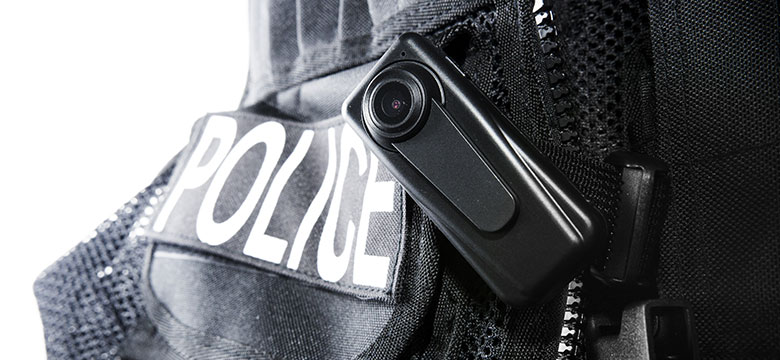The Pros and Cons of Police Body Cameras as Evidence in Pennsylvania
Aug 17 2018, by in Criminal Defense, Legal Blog, Technology & Law
Police departments in Pennsylvania and across the nation are ramping up the use of body cameras. For instance, last year, the Pennsylvania legislature passed a law that allows police body cameras to be turned on inside of private residences–a practice that was previously forbidden under the state’s wiretapping law.
This is all to provide courts with more accurate and objective evidence relating to interactions between suspects and law enforcement. While most members of the legal community agree that body camera evidence can improve the administration of justice, there are many civil rights and media organizations that are displeased, citing that Pennsylvania will keep most of the collected body cam footage out of the public eye. This could be a tremendous disadvantage to the accused.
If you are facing a criminal charge in Pennsylvania, where police body cam footage can be used as evidence, it could potentially strengthen or weaken your defense. Discussing the matter with an experienced attorney is critical. To assert your rights and to determine the best course of action in your case, contact Philadelphia criminal defense attorney Michael Fienman immediately.
Call (215) 839-9529 or submit the details of your situation online.
Police Body Cam Footage Is Not Necessarily Public Record
The public will generally not have access to body camera footage collected by the Commonwealth’s law enforcement agencies. The new law treats body camera footage like dash camera footage, which can be withheld from the public. According to Melissa Malewsky of the Pennsylvania News Media Association, this is bad policy: “One of the main purposes for gathering incident video is that there’s an impartial record of what actually happened,” Malewsky stated. “If they are not made public, it defeats the purpose of gathering them in the first place.”
When body camera footage is presented as evidence in court, it becomes a matter of public record. So any police body camera footage that is used in a case will be available to reporters and the public. But the vast majority of criminal cases end in plea agreements before any evidence becomes part of the public record. Thus, one of the only ways of ensuring footage is released is to go to trial–but that can be a risky and expensive option for some criminal defendants.
Will Body Cam Footage in Criminal Cases Help Defendants?
Before body cams, many cases came down to whether a jury or judge would be more inclined to believe the police’s version of events, or the defendant’s version. In such scenarios, defendants are generally at a disadvantage. Body camera footage, however, provides an objective account of what happened, which has already started benefitting defendants such as Gettysburg resident Derek Twyman, who was recently acquitted of charges of resisting arrest because police body camera footage corroborated his version of events.
Mr. Twyman’s lawyer, Adams County Public Defender Jason Pudleiner, told reporters from Pennlive: “We wouldn’t have won if we didn’t have the video.” He added that “any time it’s a ‘he-said, she-said’ situation with a police officer, we’re going to lose.” By this, I believe he means that juries and judges are more inclined to believe the words or the police over the words of criminal defendants and I completely agree. The body cameras are a way of leveling the playing field.
The footage could show any inappropriate actions by police officers during interactions like traffic stops, searches, and questioning. If a body cam shows that an officer coerced a suspect or did not establish probable cause before a search, then anything found may be thrown out. However, if the video depicts a properly conducted interaction, the accused would be in a more tenuous position.
Body cam footage can also offer a more objective account of events in addition to the officer’s written report, which prior to video evidence being available was the primary documentation. For instance, in DUI cases, police officers tend to use generic phrases to describe a suspect’s condition or behavior. With phrases like “glassy-eyed,” “belligerent,” “slurred speech,” and “stumbling,” this standardized language can be prejudicial and difficult to refute. However, if video footage is available, it could support a defendant’s argument with an actual depiction of the incident.
Of course, there will also be cases where body camera footage tends to show that the version of events supported by the police was correct. So, some defendants may find themselves maneuvering to avoid the introduction of body camera footage into a case. Overall, however, most defense lawyers–and even many prosecutors–believe that the use of body camera footage will promote justice. This was certainly the case for Mr. Twywan, who just received a $225,000 settlement from Gettysburg borough to compensate him for his unpleasant ordeal with the police.
Let a Skilled Defense Attorney Help Assess the Situation
If you have been charged with a crime in Pennsylvania or New Jersey, the body camera footage of your arrest may be the key to proving your innocence. Do not accept a plea deal before you and a knowledgeable lawyer have reviewed the footage. If you were unlawfully arrested you may be entitled to be compensated.
Call Fienman Defense today at (215) 839-9529 for a free and confidential consultation about your case.

